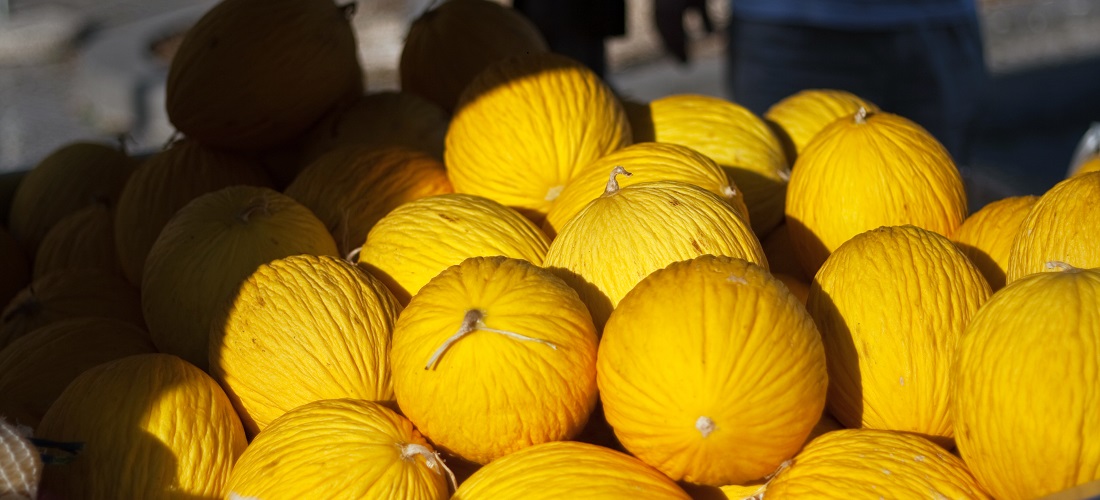
Convoluted logistics obstruct melon exports in Brazil
Sep, 26, 2022 Posted by Gabriel MalheirosWeek 202239
Despite Rio Grande do Norte being Brazil’s largest melon-producing state, logistics obstruct melon exports from there.
“Expanding exports is quite difficult because logistics are still very challenging, said Luiz Roberto Barcelos, institutional director of the Brazilian Association of Fruit Exporters (Abrafrutas) and founding partner of Agricola Famosa, the largest exporter of melons and one of the most significant agricultural industries in Brazil, “We are barely managing to supply Europe, which is our most consolidated market, due to the lack of ships, lack of containers, and constraints at the port of Natal.”
Barcelos commented on the urgent need to expand the port of Natal. “The idea of exploring distant markets, such as Asia and, mainly, China, was put on the back burner now because of big problems in the field of logistics,” he said.
According to the executive, the port has a vast space limitation, to the point that it is currently operating beyond its capacity. “We can no longer increase freight prices at the Port of Natal, so we had to use other ports in the region like Mucuripe and Suape. Many carts are blocking the traffic at the Port of Natal, receiving fines and no restroom for drivers to use. There is no space left for empty containers, which will have to be removed while they wait for the goods to arrive. We are talking to the management of Codern. There is an area that used to belong to Petrobras that can be put into use; the same goes for the area where the Maruim favela used to be. So, while we don’t get more space to work at the port, exports will have to be limited.”
See below the track record of shipments of Melon, Watermelon, and Papaya (HS 0807) from Brazil, in containers, from January 2021 to July 2022. Data are from DataLiner.
Exports of Melon, Watermelon, Papaya | January 2021 – July 2022 | TEUs
Source: DataLiner (click here to request a demo)
According to Barcelos, the sector has been looking for other ports to ship substitute Natal as its production outlet. “We [Famosa Agrícola] were the first fruit company to charter its own ships because we were wary of the delays in traditional container ships in the market. So, we decided to ship part of the production with our chartered vessel.”
For him, the advantage is that, although chartering vessels costs a little more, there is a guarantee that the fruits will travel following the proper schedule.
“Fruits must be shipped every week following the weekly harvest schedule. Since many ships arrived long after they were supposed to and skipped a week, the cargo began to build up, the melons grew older, and customers couldn’t consume at the pace they used to. Thus, there is both a distribution and commercial problem. The advantage is being able to ship our products and, if we had to resort to Ceará, is because the Port of Natal wasn’t able to meet our needs due to limited space.”
It is worth noting that melons currently represent the second item most exported by Rio Grande do Norte, with 63,000 tonnes shipped to other countries in the year’s first half.
Source: Tribuna do Norte
To read the full original article, please go to: http://www.tribunadonorte.com.br/noticia/esta-muito-complicado-ampliar-exportaa-a-o-porque-a-loga-stica-ainda-esta-muito-difa-cil-diz-luiz-barcelos-diretor-institucional-da-abrafrutas/548016
-
Ports and Terminals
Jul, 08, 2024
0
Açu Port Opens Dedicated Grain Storage Facilities
-
Economy
Apr, 18, 2022
0
US-Brazil trade growth leads up to a possible new record
-
Trade Regulations
May, 03, 2024
0
Türkiye opens three new markets, expanding trade with Brazil
-
Grains
Apr, 18, 2022
0
Record agribusiness exports total US$ 14.53 billion in March this year



